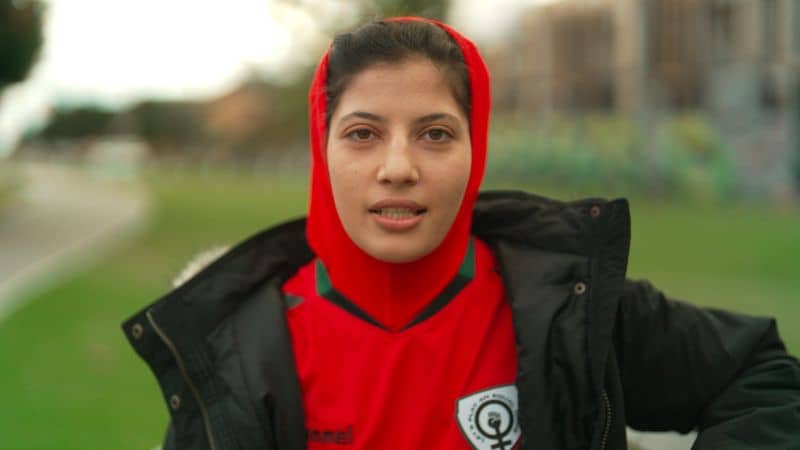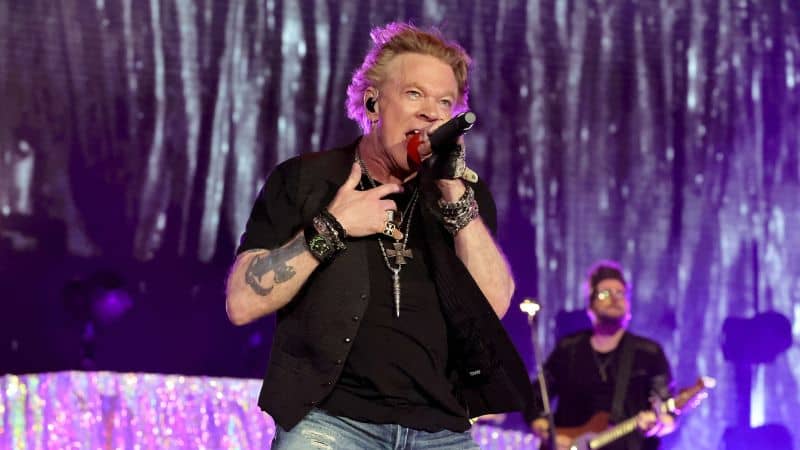Putin made the comments when meeting Chinese leader Xi Jinping in person for the first time since the invasion at a regional summit in Uzbekistan, days after Russia suffered a series of

Papua New Guinea (PNG) Foreign Minister Justin Tkatchenko said he was resigning as minister on Friday amid a controversy over the cost and size of the country’s delegation to the coronation of King Charles III in London.
Tkatchenko said in a statement that he “stood aside” after consulting with Prime Minister James Marape, who would assume the portfolio. He remains in parliament.
“I want to make sure the recent events do not interfere with the official visits and summits we are going to have with all the World Leaders in the coming weeks,” Tkatchenko said.
“I also want to ensure the truth of this matter is cleared and the misinformation and lies are corrected,” he added.
US President Joe Biden and Indian Prime Minister Narendra Modi are due on May 22 for what will be a historic visit.
On Wednesday, Tkachenko said Biden would sign a defense pact with PNG, which is being courted by the United States and China amid a contest for influence in the Pacific islands region. Tkachenko had been closely involved in the US negotiations.
Marape said in a statement on Friday evening he would take over supervision of preparations for the arrival of Biden, Modi and more than a dozen Pacific island leaders. He commended Tkachenko for putting the national interest first.
Media and online news sites in PNG, a Pacific island member of the Commonwealth, have been running hot with insults and criticism of the cost of travel of a large PNG delegation of 30 people since Saturday’s coronation in London’s Westminster Abbey, with many saying the money would have been better spent on hospitals.
Each delegate had a 50,000 kina ($14,000) allowance to cover hotels and airfares.
Marape also said he wanted to apologize to Tkatchenko’s family, and especially his daughter Savannah for what he called “the traumatic experience over the last couple of days.”
“No woman deserves to be treated the way Savannah was treated over the last few days,” he said.
Tkatchenko’s daughter, who accompanied him on the trip, has become a focal point for anger after posting a TikTok video discussing luxury shopping before boarding a flight in Singapore.
Earlier, Tkatchenko had apologized for remarks he made to the Australian state broadcaster, in which he called people criticizing his daughter on social media “primitive animals,” prompting a further backlash.
Marape said it was a “poor choice of words.”
Government House official secretary Bill Toraso confirmed to Reuters that 10 of the Governor General’s staff had traveled to London, in addition to 10 guests, and traveled separately to the government delegation. Two foreign ministry officials also traveled with Tkatchenko, who had been asked by Marape to represent PNG in his place.
Don't Miss
Sydney CNN — Australia’s men’s cricket team has withdrawn from a series of upcoming matches against Afghanistan in protest over
Putin made the comments when meeting Chinese leader Xi Jinping in person for the first time since the invasion at
By Keenan Willard, WRAL Eastern NC reporter Raleigh, N.C. — After 23 years, a beloved grocery store employee worked his

Sydney
CNN
—
Australia’s men’s cricket team has withdrawn from a series of upcoming matches against Afghanistan in protest over the ruling Taliban’s restrictions on women and girls’ education and employment, Cricket Australia (CA) said in a statement Thursday.
The teams were scheduled to play three One Day International (ODI) games in the United Arab Emirates in March, but CA decided to cancel the series after “extensive consultation” with “several stakeholders including the Australian government,” the statement said.
“CA is committed to supporting [and] growing the game for women and men around the world, including in Afghanistan, and will continue to engage with the Afghanistan Cricket Board in anticipation of improved conditions for women and girls in the country,” it added.
In December, the Taliban announced the suspension of university education for all female students. The move followed a decision in March to bar girls from returning to secondary schools, coming after months-long closures that had been in place since the hardline Islamist group took over Afghanistan in August 2021.
Later that month, the Taliban ordered all local and international non-governmental organizations (NGOs) to stop their female employees from coming to work, warning that non-compliance would result in the revocation of their licenses.
The Afghanistan Cricket Board (ACB) responded to CA’s decision on Thursday, describing it as “pathetic” and “an attempt to enter the realm of politics and politicize the sport.”
“By prioritizing political interests over the principles of fair play and sportsmanship, Cricket Australia is undermining the integrity of the game and damaging the relationship between the two nations,” the statement added.
“The decision to withdraw from playing the upcoming ODI series against Afghanistan is unfair and unexpected and will have a negative impact on the development and growth of cricket in Afghanistan, as well as affect[ing] the love and passion of the Afghan nation for the game.”
The ACB said it was considering what action to take on the matter, including the possibility of writing to the International Cricket Council (ICC) and “rethinking the participation of Afghan players” in Australia’s domestic Twenty20 competition, the Big Bash League (BBL).
The ACB statement followed comments from prominent Afghan player Rashid Khan.
Khan, who played for the Adelaide Strikers in this year’s BBL, accompanied a statement on Twitter with the words: “Keep politics out of it.”
“I am really disappointed to hear that Australia have pulled out of the series to play us in March,” Khan wrote.
“I take great pride in representing my country and we have made great progress on the world stage. This decision from CA sets us back in that journey.
“If playing vs Afghanistan is so uncomfortable for Australia then I wouldn’t want to make anyone uncomfortable with my presence in the BBL. Therefore I will be strongly considering my future in that competition.”
CA had previously backed out of a proposed Test match against Afghanistan due to be hosted in Tasmania in November 2021 over the Taliban’s ban on women participating in sports.
“Driving the growth of women’s cricket globally is incredibly important to Cricket Australia. Our vision for cricket is that it is a sport for all, and we support the game unequivocally for women at every level,” CA said at the time.
Australia’s sports minister Anika Wells on Thursday said Canberra supports Cricket Australia’s move.
“The Australian government welcomes Cricket Australia’s decision to withdraw from the upcoming men’s One Day International series against Afghanistan, following the Taliban’s increased suppression of women and girls’ rights,” she tweeted.
Although the Taliban repeatedly claimed it would protect the rights of girls and women, the group has done the opposite, stripping away the hard-won freedoms for which women have fought tirelessly over the past two decades.
The United Nations and at least half a dozen major foreign aid groups have said they are temporarily suspending their operations in Afghanistan following the ban on female NGO employees.
Don't Miss
How Afghanistan women’s football team made it to Australia Playing football for your national team is a dream for many,
Nadia Nadim on women’s football in Afghanistan one year on from Taliban takeover Nadia Nadim — the soccer player who
Papua New Guinea (PNG) Foreign Minister Justin Tkatchenko said he was resigning as minister on Friday amid a controversy over
“We highly appreciate the balanced position of our Chinese friends in connection with the Ukrainian crisis. We understand your questions and concerns in this regard,” Putin said in an opening speech of the meeting. “During today’s meeting, of course, we will explain in detail our position on this issue, although we have spoken about this before.”
The two authoritarian leaders have emerged as close partners in recent years, propelled by growing conflict with the West and a strong personal bond.
China has offered tacit support for Russia’s actions in Ukraine, while Moscow has backed Beijing and criticized Washington over US House Speaker Nancy Pelosi’s visit to Taipei in August. Beijing responded to her trip with unprecedented military drills around the self-governing democratic island, which it claims as its own territory.
In their meeting Thursday, Putin condemned the United States for what he said were “provocations” in the Taiwan Strait, and criticized what he claimed were attempts to “create a unipolar world.” Those attempts, he said, have “recently taken an ugly shape and are absolutely unacceptable to most states on the planet.”
The two are holding talks on the sidelines of a summit of the Shanghai Cooperation Organization, a regional security-focused grouping that also includes India, Pakistan and four Central Asian nations.
In a symbolic show of force and unity, Russian and Chinese navies conducted joint patrols and exercises in the Pacific Ocean just hours before their leaders’ meeting, according to Russia’s Ministry of Defense.
At the start of the meeting Thursday, Putin stressed the deepening economic ties between China and Russia, noting bilateral trade exceeded $140 billion last year. “I am convinced that by the end of the year we will reach new record levels, and in the near future, as agreed, we will increase our annual trade turnover to $200 billion or more,” he said.
Putin last met with Xi during a visit to the Chinese capital for its Winter Olympics in February this year. It was at that meeting that the two leaders framed their “no-limits’ partnership, and released a 5,000-word document voicing their shared opposition to the “further enlargement of NATO.”
For Xi, meanwhile, Thursday’s meeting comes as part of his first trip outside of China’s borders in more than two years, and just weeks before he seeks to secure a norm-breaking third term at a major political meeting in Beijing — a move that will cement his status as China’s most powerful leader in decades.
China has turned increasingly inward since the beginning of the pandemic, and continues to maintain a strict zero-Covid policy that limits outbound travel.
Xi’s trip to Central Asia is a return to the world stage and offers him an opportunity to show that despite growing tensions with the West, China still has friends and partners and is ready to reassert its global influence.
In a meeting with Kazakh President Kassym-Jomart Tokayev on Wednesday, Xi said China would like to partner with Kazakhstan to “remain pioneers in Belt and Road cooperation.”
Xi also told Tokayev that “China will always support Kazakhstan in maintaining national independence, sovereignty and territorial integrity,” Chinese state media reported.
The Chinese leader traveled to Uzbekistan on Wednesday evening and met with Uzbek President Shavkat Mirziyoyev. He also met the presidents of Kyrgyzstan, Tajikistan and Turkmenistan Thursday.
Don't Miss
Editor’s Note: Monthly Ticket is a CNN Travel series that spotlights some of the most fascinating topics in the travel
US national security adviser Jake Sullivan confirmed Sunday that the US will allow European countries to start training Ukrainian fighter
A view of the Kremlin in Moscow, Russia, on September 19, 2021. (Alexander Nemenov/AFP/Getty Images) Senior Russian officials at the
By Keenan Willard, WRAL Eastern NC reporter
Raleigh, N.C. — After 23 years, a beloved grocery store employee worked his final shift at the Glenwood Village Harris Teeter Tuesday.
When the community found out Tim McCloud was leaving, they decided to hold a fundraiser to show him how much he’s meant to them over the years – and ended up giving him a life-changing sendoff.
Just about every day for more than two decades McCloud made the commute from Wilson County to the Harris Teeter on Glenwood Avenue in Raleigh.
Officially, he’s bagging groceries but to his customers, he’s doing much more.
Julie Caviness called McCloud her part-time therapist.
“He’s just incredible. He’s legendary here, I don’t think he even knows it, that’s what makes it so beautiful,” said Caviness. “He does not have a clue what a great impact he’s had within our community.”
In years worth of moments in the checkout line, she’s been able to talk to him about anything – they’ve even cried together,
And he’s watched her children grow up.
Caviness said many of her friends have the same kind of relationship with him.
But two weeks ago, McCloud told her something she wasn’t prepared for.
“He started talking about an opportunity opening up in Wilson, nine minutes from his house,” said Caviness. “I started crying. I was like ‘you can’t leave me.'”
After 23 years, McCloud was transferring to a Harris Teeter closer to home.
“When he told me that, I said ‘how do I help him?'” said Caviness.
Caviness decided on a fundraiser.
She launched a page on GoFundMe, without telling him, with the goal of raising $1000.
The site hit that goal in under an hour.
“I knew he had a fan club, we all talk about Tim and how kind he is. I don’t think I had any clue how big his fan club is,” said Cavines. “So then we hit five. Then my mom’s texting me like every hour, ‘what’s it up to now?’ Then we hit ten. And I’m like, ‘oh wow.'”
By the night of McCloud’s last shift, the GoFundMe had raised nearly $23,000. On Wednesday, over $26,000 had been raised.
McCloud had no idea.
On Tuesday night, Caviness went shopping during McCloud’s final day of work – and asked him to walk her out one last time.
Hundreds of people cheering him on with signs and balloons were waiting for him.
He was overcome with emotion.
And then, the big reveal. They presented McCloud with the results of the GoFundMe.
As the crowd said their goodbyes, McCloud told WRAL News what this final gift will mean to him.
“It’ll help me a whole lot,” said McCloud. “I’m blessed with it, you know.”
McCloud said more than anything he’s going to miss the community he had here in Raleigh.
Don't Miss
CNN — Axl Rose is ending a 30-year Guns N’ Roses tradition. The band’s frontman recently posted a note saying
CNN — Novak Djokovic cruised through to the US Open final after a dominant 6-3 6-2 7-6 (7-4) win against
Chris Kirk speaks to CNN after first PGA Tour win in 8 years American golfer Chris Kirk had won four
Their refusal to mourn highlights the complexity of the legacy of the Queen, who despite widespread popularity was also seen as a symbol of oppression in parts of the world where the British Empire once extended.
Kenya, which had been under British rule since 1895, was named an official colony in 1920 and remained that way until it won independence in 1963. Among the worst atrocities under British rule occurred during the Mau Mau uprising, which started in 1952 — the year Queen Elizabeth took the throne.
Africa’s memory of the Queen cannot be separated from that colonial past, professor of communication Farooq Kperogi at Kennesaw State University told CNN.
“The Queen’s legacy started in colonialism and is still wrapped in it. It used to be said that the sun did not set over the British empire. No amount of compassion or sympathy that her death has generated can wipe that away,” he told CNN.
‘Tragic period’
While many African leaders have mourned her passing — including Nigeria’s President Muhammadu Buhari, who described her reign as “unique and wonderful” — other prominent voices in regional politics have not.
“Our interaction with Britain has been one of pain, … death and dispossession, and of the dehumanisation of the African people,” it added.
Others recalled Britain’s role in the Nigerian civil war, where arms were secretly supplied to the government for use against Biafrans who wanted to form a breakaway republic. Between 1 million and 3 million people died in that war. British musician John Lennon returned his MBE, an honorary title, to the Queen in protest over Britain’s role in the war.
Still, many on the continent remember the Queen as a stabilizing force who brought about positive change during her reign.
Ayodele Modupe Obayelu from Nigeria told CNN: “Her reign saw the end of the British Empire and the African countries … became a Republic. She doesn’t really deserve any award or standing ovation for it, but it was a step in the right direction.”
And Ovation magazine publisher Dele Momodu was full of praise, recounting meeting her in 2003 in Abuja while covering her visit to Nigeria. He added that he had fled Nigeria for the UK in 1995, during the dictator Sani Abacha’s regime.
“I told her I was a refugee and now the publisher of a magazine. She told me ‘congratulations,’ and moved on to the other people on the line. I salute her. She worked to the very end and was never tired of working for her country. She did her best for her country and that is a lesson in leadership,” he told CNN.
Momodu believes that the Queen did try to “atone” for the brutality of the British Empire. “She came to Nigeria during our independence and some of the artifacts were returned under her reign. That is why the Commonwealth continues to thrive. I feel very sad that the world has lost a great human being.”
Adekunbi Rowland, also from Nigeria, said: “The Queen’s passing represents the end of an era. As a woman, I’m intrigued by her story. This young woman had an unprecedented accession to the throne, and with much grace and dignity did everything in her power to protect the country and Commonwealth she loved no matter what it took.”
Commonwealth Queen
It was while visiting Kenya in 1952 that she learned that she had become Queen. Her father George passed away while she was there with Prince Phillip and she immediately ascended the throne.
As colonialism later crumbled and gave way to independence and self-rule in what had been British overseas territories, the former colonies became part of a Commonwealth group of nations with the Queen at its head and she worked tirelessly to keep the group together over the years.
She forged strong bonds with African leaders, including Nelson Mandela, whom she visited twice in South Africa, and Kwame Nkrumah, with whom she was famously pictured dancing during her visit to Ghana in 1961.
In June, Prince Charles became the first UK royal to visit Rwanda, where he was representing the Queen at the Commonwealth Heads of Government Meeting.
Following his mother’s death, he now heads the Commonwealth, and will embark on a new relationship with its members, about a third of which are in Africa.
Some are asking whether he will be as effective in building the organization as his mother, and above all, how relevant it still is, given its roots in Empire.
Don't Miss
Papua New Guinea (PNG) Foreign Minister Justin Tkatchenko said he was resigning as minister on Friday amid a controversy over
Sydney CNN — Australia’s men’s cricket team has withdrawn from a series of upcoming matches against Afghanistan in protest over
The funeral of Queen Elizabeth II of Britain, who died Sept. 8 at 96, took place Monday morning in




















